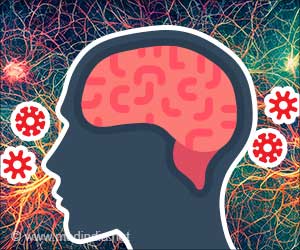Stress and rapid-eye-movement (REM) sleep are associated with genes involved in cell death and survival, reveals a new study.

‘Stress and rapid-eye-movement (REM) sleep are associated with genes involved in cell death and survival, reveals a new study. The study findings suggest that an increase in REM sleep can activate signaling pathways in the brain which allow it to change in response to 'mildly stressful' waking experiences.’
Read More..




REM sleep, also known as paradoxical sleep, is the sleep state during which we have most of our dreams and is involved in the regulation of emotions and memory consolidation. REM sleep disturbances are common in mood disorders, such as depression. However, little was known about how sleep changes are linked to molecular changes in the brain.Read More..
During this 9-week study, conducted by researchers from the Surrey Sleep Research Centre at the University of Surrey in collaboration with Eli Lilly, mice were intermittently exposed to a variety of mild stressors, such as the odor of a predator. Mice exposed to mild stressors developed signs of depression; they were less engaged in self-care activities; were less likely to participate in pleasurable activities such as eating appetizing food, and became less social and interested in mice they hadn't encountered before.
Monitoring their sleeping patterns, researchers identified an increase in the duration and continuity of REM sleep and specific brain oscillations characteristic of REM sleep, whereas 'deep' sleep, or non-REM sleep, did not change. The changes in REM sleep were very tightly linked to a deficiency in the regulation of the stress hormone corticosterone. Mild stress also caused changes in gene expression in the brain.
To further understand the link between stress, the stress hormone, REM sleep, and gene expression, researchers undertook a novel machine-learning approach, which identifies groups of genes that can predict the observed sleep, behavioral and hormonal characteristics. This revealed that REM sleep, the regulation of the stress hormone and a behavioral sign of depression were closely associated with molecular pathways involved in the death and survival of cells in the brain, primarily in the hippocampus.
These data suggest that an increase in REM sleep can activate signaling pathways in the brain which allow it to change in response to 'mildly stressful' waking experiences. The findings may provide a better understanding of how stress leads to mood disorders and how changes in sleep may contribute to this.
Advertisement
Senior Author Dr Raphaelle Winsky-Sommerer, Reader in Sleep & Circadian Rhythms at the University of Surrey, said: "The behavioural and sleep changes are very similar to those observed in depression, and we, therefore, believe that the molecular changes observed in mice may also be relevant to the response to stress and mood disorders in humans."
Advertisement
Source-Eurekalert















